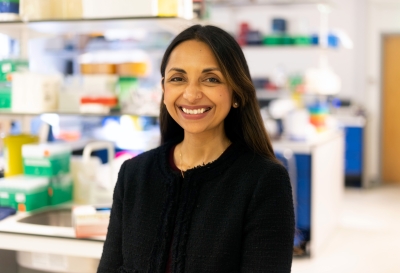18 December 2023
 A recently published study has found differences when comparing the heart scans and tests between male and female patients with dilated cardiomyopathy (DCM), a disease of the heart muscle which affects the heart's ability to pump blood around the body.
A recently published study has found differences when comparing the heart scans and tests between male and female patients with dilated cardiomyopathy (DCM), a disease of the heart muscle which affects the heart's ability to pump blood around the body.
Led by Dr Upasana Tayal, consultant cardiologist at Royal Brompton and Harefield hospitals, and clinical senior lecturer at Imperial College London, the results from the study form part of a larger body of work, which aims to investigate sex-specific differences in patients with DCM.
The research team looked at several tests including MRI, echocardiograms, genetics and blood tests in over 600 patients with DCM at Royal Brompton hospital over a 3-4 year period.
The findings
When comparing test results between the sexes, it was found that female patients appeared to have a less severe form of the disease compared to the male patients. This included female patients having less dilated hearts, better heart function and less scarring in the heart muscle.
With these differences it would be natural to assume that female patients with this ‘milder’ form of the disease would do better and have less complications. However, this is not the case.
Instead, Dr Tayal and her team found that when looking at complications in these patients, female patients had twice as many complications as the male patients, particularly heart failure complications.
What does this mean for patients? Dr Tayal said:
“With these results it’s clear we need to do more work to understand why there is this difference and how we can improve outcomes for all our patients.
“Are we missing heart disease in females at an earlier stage? Should male and female patients have different cut offs for diagnosis and/or treatment? These are just some of the questions we need to answer.”
So, what’s next?
Dr Tayal and hear team, along with Professor Sanjay Prasad, consultant cardiologist, plan to look at theses issues on a global scale by leading an international consortium in DCM to try to better understand how and why heart disease differs between male and female patients.
To find out more about our research, please contact us.
Read more research stories or sign up to our research newsletter.
